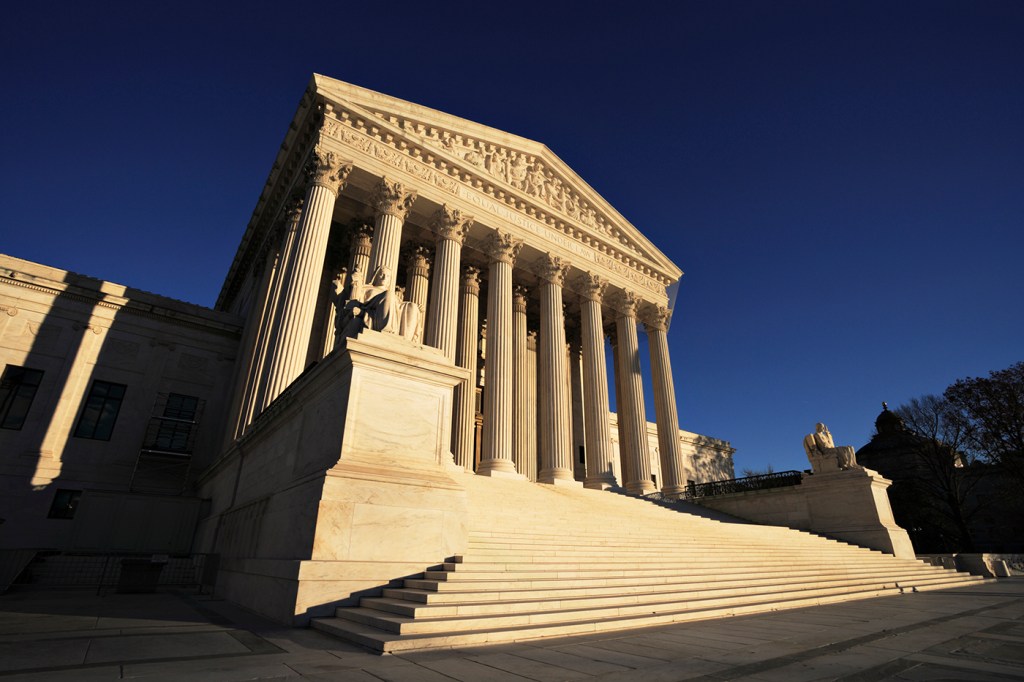Trump’s Supreme Court selection and what it means for the court, nation

President Donald Trump announced his nominee for the Supreme Court on Tuesday in a prime-time address, picking Neil Gorsuch to fill a seat held vacant for more than a year after the death of Justice Antonin Scalia.
A 49-year-old judge on the Denver-based 10th Circuit of Appeals, Gorsuch graduated from Harvard Law School and clerked for two Supreme Court Justices—Byron White and Anthony Kennedy. He is known as a textualist, who considers only the words of the law being reviewed, not legislators’ intent or the consequences of the decision, and has been described by NPR as a “reliable conservative on social issues.”
“I have selected an individual whose qualities define what we’re looking for,” Trump said after announcing his pick on Tuesday. “Judge Gorsuch has outstanding legal skills, a brilliant mind, tremendous discipline, and has earned bipartisan support.”
We asked Dan Urman, director of the undergraduate minor in law and public policy, to explain why Trump picked Gorsuch and what effect his appointment could have on the outcome of future Supreme Court cases.
Why do you think Trump selected Gorsuch over the other two judges who were reported to be in the running, and where does he stand on today's hot-button issues, including abortion, gay rights, and gun control?
For such a norm-shattering president, Trump followed convention with his Supreme Court pick (other than the Bachelor inspired decision to make finalists travel to Washington, D.C.) During the 2016 campaign, Trump released two lists of potential nominees. The list stood out for its relative lack of Ivy League graduates and large number of representatives from “the heartland” instead of the “Acela Corridor,” the swampy region between Boston and Washington, D.C.
Trump is famously interested in a “look,” and for Gorsuch, this may have sealed the deal. He is handsome, resembles Mike Pence, and looks like he plays a Supreme Court Justice on television. For all of Trump’s educational populism (he once said “I love the poorly educated”), he is impressed by fancy educational credentials. In fact, his Cabinet and senior team includes Ivy League graduates. Gorsuch’s stellar academic credentials (he earned degrees from Columbia, Harvard, and Oxford on a Marshall Scholarship) may have tipped the scales. Trump referred to Gorsuch’s educational pedigree in his remarks.
As a U.S. Courts of Appeals judge, Gorsuch has applied existing law in a mostly conservative way. Gorsuch wrote the lower court Hobby Lobby opinion, ruling that closely held corporations may refuse, on religious objections, to cover contraceptive services for their employees. He has not issued any major rulings on affirmative action or gun control. Like Scalia, Gorsuch’s originalism has led him to “liberal” rulings in criminal law. He sometimes reads criminal laws narrowly to favor criminal defendants. However, Gorsuch’s death penalty positions are nearly identical to Scalia’s.
Some Democrats have vowed to filibuster virtually anyone Trump selected, but other party members have considered the possibility of saving that option for a future nomination that could shift the ideological balance of the court. How do you see the confirmation process playing out?
I believe that some Democrats, like Jeff Merkley of Oregon, will complain about the “stolen seat” that should have gone to Merrick Garland. He might try to mount a filibuster. Ultimately, I do not think that many Democrats will join him on a nominee like Judge Gorsuch. They might want to reserve the right to filibuster a future nominee, especially if the nominee is replacing Justice Kennedy or one of the more liberal members. Gorsuch is certainly conservative, but less than Justice Thomas and, by some measures, Justices Alito and Roberts. That suggests that Judge Gorsuch is in the mainstream. He is, to be sure, more conservative than many current members of the court, but elections do have consequences.
Once Judge Gorsuch has courtesy meetings with senators, the Senate Judiciary Committee will schedule hearings. The senators will each speak for much longer than necessary during their opening remarks. The Democrats will talk about Judge Garland. Judge Gorsuch will smile and bring his family, and purposely evade all substantive questions on topics other than the weather, apple pie, and baseball (he might even compare himself to an umpire). Then, the judiciary committee will vote on the nominee and “release” it to the floor. There might be a few attempts at a filibuster but, ultimately, Judge Gorsuch will be confirmed with some Democratic votes.
Assuming Gorsuch is confirmed, what impact do you think his appointment will have on the outcome of future Supreme Court cases?
Judge Gorsuch will affect the court in short-term and long-term ways. Here are some of them:
New family dynamic: Former Justice Byron White, who watched 13 Justices join him during his 31-year career on the court, said that “every time a new Justice comes to the Court, it’s a different court.” In addition to the seating arrangement and order of seniority, the new Justice will alter dynamics like any new member of a multi-member body.
Back to nine: The new Justice will return the court membership to 9, so he will break ties on issues where the court divided 4-4 (when this happens, the court leaves the lower court ruling in place). Last term, this happened in two hot button cases: public sector unions and President Obama’s executive action on deferred deportation. In the former case, the 4-4 split meant a victory for the union members; in the second one, the court left a lower court opinion in place preventing the president from implementing his deferred deportation order.
The resurgence of the court: Gorsuch’s role will return the court to the forefront of American social and political life. With guaranteed 4-4 splits on controversial topics, the Court has heard fewer cases on contested matters. The court will once again embrace its central role as the last word on disputes over abortion, affirmative action, environmental regulation, federalism, gun control, religious liberty, and gender rights. As Justice Robert Jackson once said, “we are not final because we are infallible. We are infallible because we are final.”
The Kennedy court, Part II: Justice Kennedy will reprise his role as the nation’s swing Justice. Appellate lawyers will start writing “Kennedy briefs” to appeal to Kennedy.
Ivy tower power: The nomination cements the Ivy League dominance on the Supreme Court. All current Justices graduated from Ivy League law schools, and many of them also attended Ivy League schools for college.
The Apprentice: If Gorsuch is confirmed, this will be the first time a former clerk joins his boss on the Supreme Court. Gorsuch clerked for Justice Kennedy in the early 1990s.





